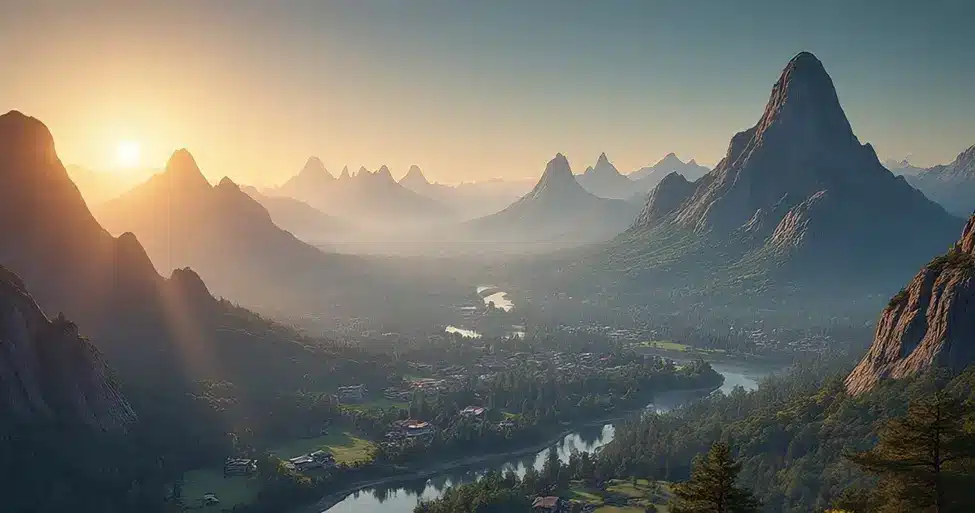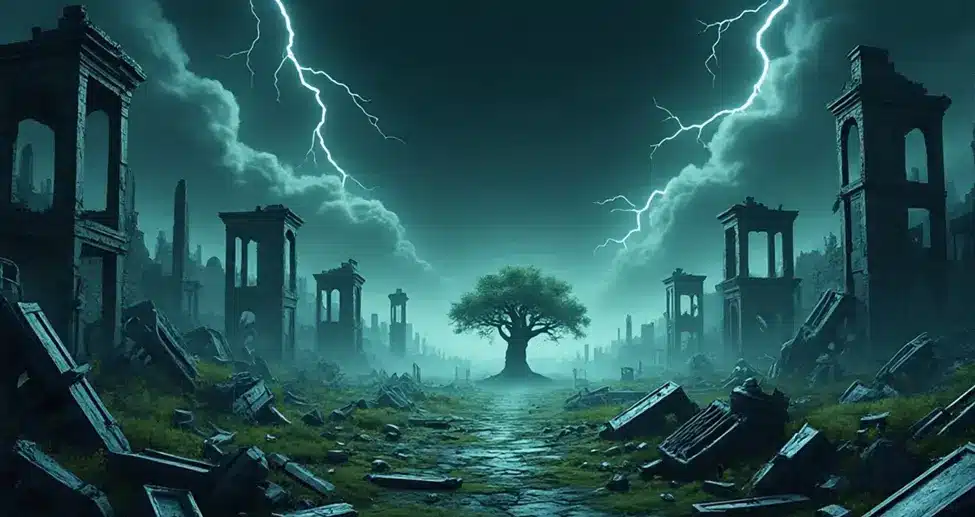Ashes of Creation is one of the most ambitious MMORPGs. Unlike other MMORPGs, where you have static towns and cities, Ashes has a world that evolves and grows based on the player’s actions. Monsters killed, resources gathered, and dungeons cleared contribute to the growth of a Node. These Nodes can develop into villages, towns, or even sprawling metropolises. Enabling a unique world on every server. This creates a living and breathing world.
For players who wish to explore or invest in the economy of Verra, understanding the Node system is a must. From the earliest levels, your choices contribute to how the world grows around you. Whether you’re gathering, crafting, fighting, or trading, you’ll want to learn how Nodes evolve. For those who also engage in the economy side of the game, you may find opportunities to buy Ashes of Creation gold to strengthen your position, since wealth and Node development go hand in hand.
What Are Nodes in Ashes of Creation?
Nodes are dynamic, world-building systems tied to regions of Verra. Every Node starts as a wilderness and serves as a growth point for a player’s influence region. As a player, if you hunt monsters, gather resources, or complete content in that region, the Node gains “experience” and eventually levels up.
When a Node levels up, the area changes permanently. NPCs arrive, buildings rise, new services open, and unique questlines emerge. Over time, what was once a forest with wolves could become a bustling town filled with player-run markets and political drama.
There are 103 Nodes spread across the world of Verra, each with its own potential to grow and transform.
The Stages of Node Development

Nodes progress through seven stages of growth, each offering new features and opportunities for players.
| Stage | Description | Features Unlocked |
| Wilderness | Untouched land with no structures. | Monsters, resources, exploration. |
| Expedition | First signs of activity, NPC scouts arrive. | Basic quests, small gathering hub. |
| Encampment | A handful of structures, early settlement stage. | Vendors, trainers, minor crafting stations. |
| Village | A small, organized community with a stable NPC presence. | Quest hubs, player housing plots open. |
| Town | Larger community with advanced services. | Player shops, guild influence, and more housing. |
| City | A thriving urban center. | Political offices, caravans, and advanced crafting. |
| Metropolis | The highest Node stage, affecting huge regions. | Endgame systems, sieges, and top-tier economy. |
Each Node can only grow if players are actively contributing to it, and importantly, Nodes compete with each other. A Node growing into a City may prevent a nearby Node from advancing beyond Village, creating a strategic dynamic across the map.
Four Types of Nodes
Nodes aren’t just about size; they also come in different types that shape their development. Each type creates different gameplay paths and unlocks unique content.
Divine Nodes
- Focus on religion and faith.
- Unlock temples, divine quests, and blessings.
- Encourage alignment with specific deities.
Economic Nodes
- Centered around trade and wealth accumulation.
- Features bustling markets, auction houses, and caravans.
- Perfect for players who enjoy crafting and commerce.
Military Nodes
- Prioritize combat, defense, and order.
- Develop into fortresses with barracks and training grounds.
- Open paths for PvP tournaments and leadership roles.
Scientific Nodes
- Focused on knowledge and innovation.
- Unlock libraries, universities, and research systems.
- Provide fast travel options between scientific Nodes.
Because each Node type evolves differently, the world’s development will vary depending on the playerbase’s interests on a given server.
How Players Influence Node Growth

The Node System is designed to make every action matter. Here are the primary ways players contribute:
- Combat: Killing monsters within a Node’s region grants it experience.
- Gathering: Harvesting resources fuels growth.
- Quests: Completing quests in a Node helps expand NPC presence.
- Events & Raids: Large-scale activities directly boost a Node’s progress.
This system ensures that no player action is wasted. Even a casual player gathering herbs or fishing near a Node contributes to shaping Verra’s future.
Housing and Player Influence
One of the biggest attractions of Node development is player housing.
- Static Housing: Available in villages and above, tied to land plots.
- Instanced Apartments: Available earlier and more affordable.
- Freeholds: Large land plots outside of Node boundaries, unlocked through progression.
Housing ties directly into Node progression. If a Node regresses, houses within that Node may be destroyed. This creates a living environment where politics, defense, and alliances matter.
Politics and Leadership in Nodes
Nodes aren’t just towns; they’re political entities. Once a Node reaches the City stage, it develops a leadership system. Players can run for office, become mayors, or influence Node policies.
- Mayors: Elected or appointed, depending on Node type.
- Taxes: Leaders can set tax rates on goods and services.
- Policies: Decisions you made may affect trade, defenses, and alliances.
This political system ensures that leadership isn’t just cosmetic—it directly impacts gameplay. For example, a mayor of an Economic Node could adjust caravan protections, influencing trade routes and opportunities for PvP.
Node Sieges and Warfare
Nodes aren’t permanent. Sieges are a core part of Ashes of Creation’s endgame and it allows players to attack and destroy developed Nodes.
- If attackers succeed, the Node is downgraded or may be destroyed.
- Player housing tied to that Node can be lost.
- Politics reset, giving new opportunities for leadership.
This cyclical destruction ensures that the world never stagnates. One server’s Metropolis might survive for months, while another might see frequent wars and collapses.
Caravans and the Economic Lifeblood of Nodes
Nodes thrive on caravan systems, which connect trade between regions. Players must transport goods between towns and cities, creating opportunities for trade, ambush, and defense.
- Successful caravan runs strengthen a Node’s economy.
- Failed runs can weaken it, especially if raiders intercept.
- Caravans encourage PvP and cooperation, tying economy and warfare together.
This system makes Node development more than just grinding; it forces players to participate in the world’s living economy.
Why the Node System Makes Ashes of Creation Unique
The Node System sets Ashes of Creation apart from other MMORPGs because of the following: Player Agency, Dynamic World, Political Stakes, and High Risk with high Reward. This design makes every decision meaningful. Players can’t simply ignore the world-building systems as they’re woven into the core of the game.
Tips for Thriving in the Node System
If you want to succeed in shaping Verra’s future, keep these tips in mind:
- Pick Your Node Type Carefully: Choose a Node that aligns with your playstyle.
- Engage Early: Start contributing to your chosen Node as soon as possible.
- Form Alliances: Success in sieges, politics, and the economy often requires strong guild or community support.
- Protect Your Investments: If you own housing in a Node, defend it during sieges. Losing a Node could mean losing your hard-earned progress.
- Diversify Roles: Even if you’re a crafter, helping defend the caravans or contests improves your Node.
FAQs
Q1: What are Nodes in Ashes of Creation?
Nodes are dynamic zones in Verra that grow and evolve as players interact with them. They can develop into towns, cities, or metropolises depending on player activity.
Q2: How do my actions affect Nodes?
Killing mobs, completing quests, and trading in a region all contribute to the growth of a Node. Your activity directly shapes the type of civilization that forms.
Q3: Can Nodes be destroyed or reset?
Yes. Nodes can be attacked and besieged by other players. If they fall, their structures and services may be lost, changing the world dynamically.
Q4: What is the benefit of specializing in one Node?
Focusing on a single Node type (Economic, Military, Scientific, or Divine) has its advantages, as each type has its own buildings, bonuses, and services that can aid in your progression.
Final Thoughts
The ingenuity and imagination Ashes of Creation has shown in the design of the Node System is astounding. It enables the game to contain a dynamic and interactive ecosystem that evolves with player choices and actions.
Any player can change an entire settlement, transforming it to a thriving city and trade center. Would you prefer ostracizing yourself in an affluent town as a passive trader or becoming a touted politician? The Node System guarantees it to be a satisfying experience.
Also Read-Smart Home, 21st Century Comfort: Should You Bring Tech into Every Corner?







